Gareth Southgate faces toxic atmosphere with risk his England have gone stale
- Oops!Something went wrong.Please try again later.
After a night when everything went wrong for England, many of the fans who abused Gareth Southgate might admit he got one thing right.
“It’s totally down to me,” the manager said, after a defeat to Hungary of historic scale for the national team.
Just one problem, however, is that many might interpret that much more deeply than Southgate intended. The growing feeling, always lingering but articulated so aggressively by a furious crowd at Molineux, is that it’s “time to go”; that it’s down to him because he’s never been that good.
It is of course harsh, but might actually point to the most meaningful consequence of the night, beyond any pure football problems within the team or even a loss of momentum. It is that, for the first time, Southgate is facing the really toxic atmosphere that has eventually engulfed every England manager.
The extra danger is that it wouldn’t take too much to fully turn, that any bad result could be similar to the 0-0 draw with Algeria in 2010, or the 1-1 draw with Russia at the start of Euro 2016. Southgate, for his part, confronted this head on in a typically frank press conference after this 4-0 defeat.
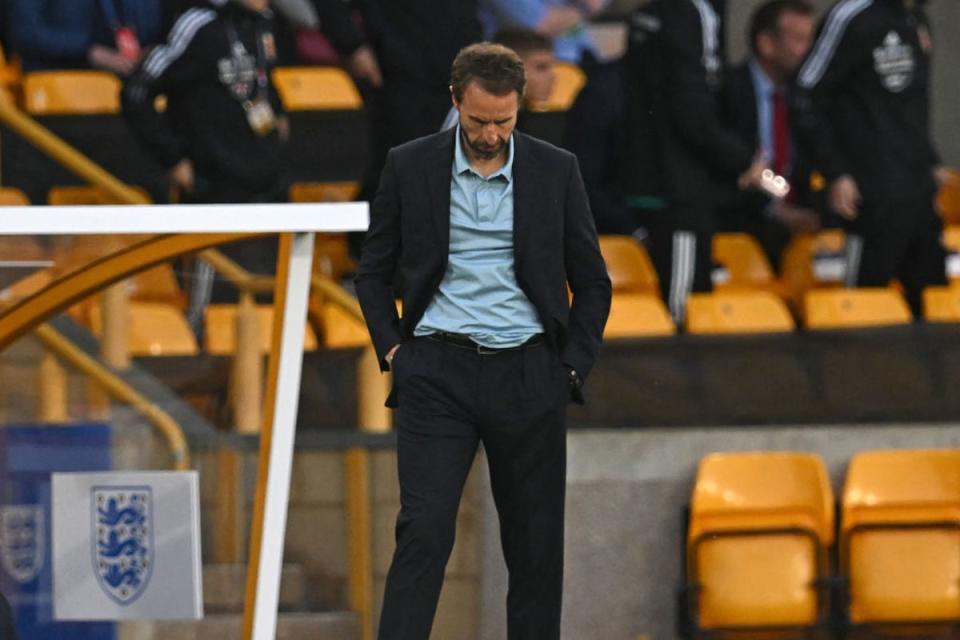
“I know the role,” Southgate said, when specifically asked about a position long known as the “impossible job”. “I knew the role before I took it. I saw all my predecessors go through that, great people like Sir Bobby Robson and how he was viewed.
“If the flak comes my way I have to deal with that. It’s not realistic to have the ride I’ve had for five years and not have criticism.”
It was admirable perspective given how stunning the result was on the night, but then that was the sense Southgate radiated throughout.
He was essentially saying this didn’t really matter without explicitly saying it. He pointed to the time of the season, the unnecessary length of this break, the lack of friendlies before the World Cup and - ultimately - how he had to rotate the team as a consequence of all that.
It meant England never had, as Southgate put it, their “strongest team” out.
“I don’t think it is damaging for the mentality of the group because they haven’t been at full strength for any of the matches. That’s the key factor.”
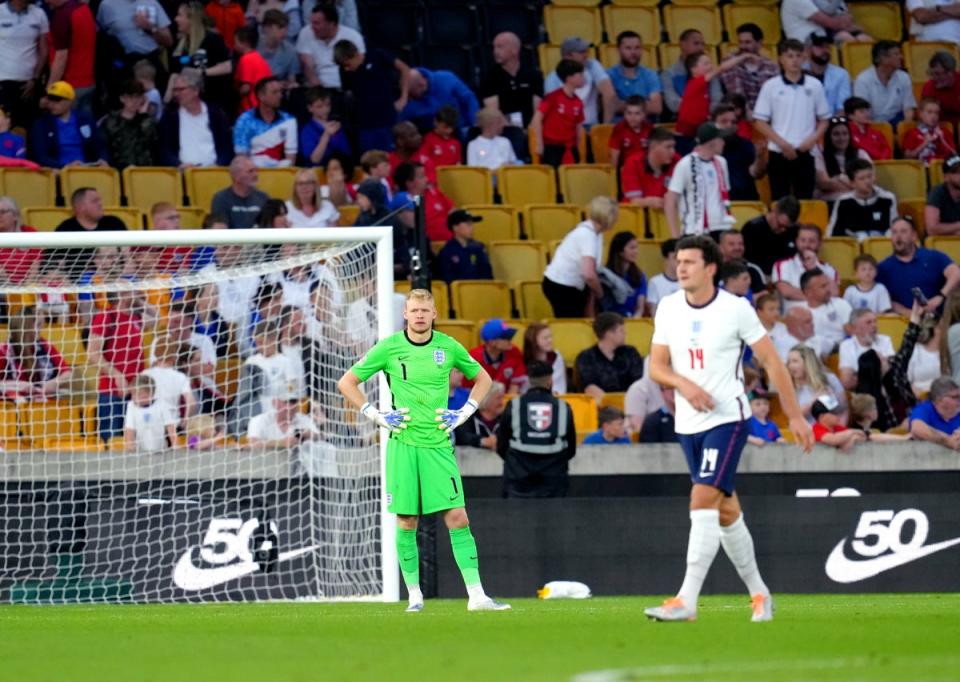
An unfair reading of this would be that the England manager was actually being dismissive of some of his secondary players, and even “throwing them under a bus”.
It wasn’t that, though. It was more Southgate saying he went too experimental in terms of the balance of the team, and often left England without sufficient experience.
That, combined with everything else, resulted in more gaps than usual in this team as well as far fewer goals.
England only scored one in these four games, and that was from a penalty. It was probably the most damning of a number of alarming figures for Southgate from these four games, maybe even beyond the historic scale of the Hungary result.
Marco Rossi’s joyous press conference - where he spoke of potentially getting a minute’s silence in Hungary when he dies - pointed to the reality that these games represent greater opportunities for nations below the top tier. That is connected to the fact most of their players have had far fewer minutes over the course of long seasons.
That is relevant and bears repeating. It is why, as Southgate made sure of referencing, “others teams across Europe have experienced” similar problems to England. All of France, Germany, Italy, Spain, Portugal, Croatia and Belgium have had surprises in this break.
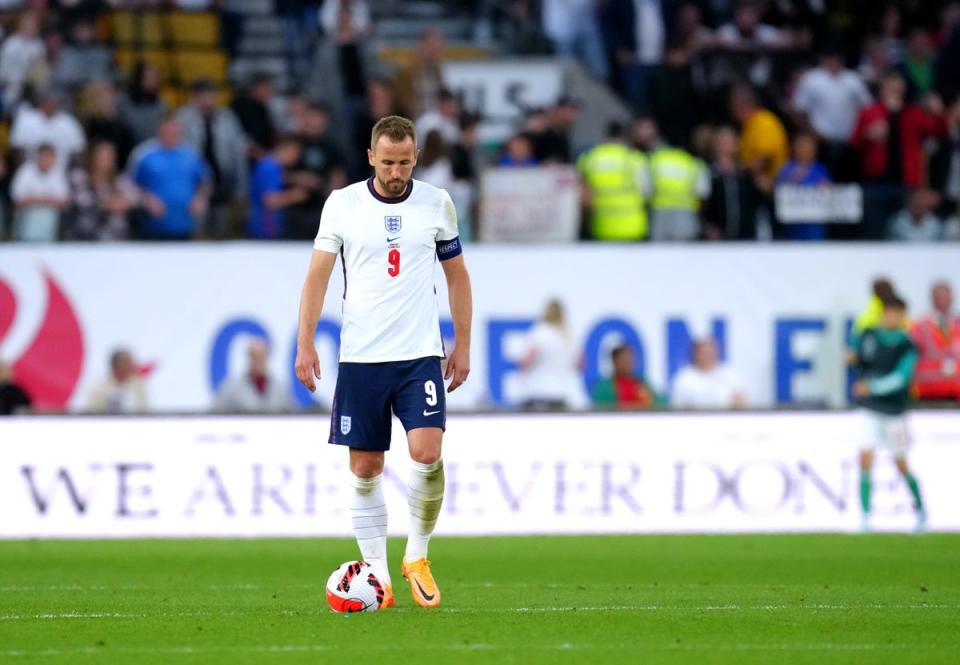
But there is one difference, which marks one other genuine note of concern for Southgate from these results.
Most of those teams have put in more than one convincing performance. All have shown an attacking idea.
This is one element that still feeds like it is missing from Southgate’s England, that remains the main source of criticism.
There is that persistent argument that he is some way short of being an elite coach, whatever about his suitability as a managerial figure.
England are too rigid, too defensively structured, too inefficient at using their abundant talent.
The greater argument that runs alongside that is that many other managers could get much more out of this group, that is one of the strongest in world football.
Some of that might be true, but some caveats are necessary.
England are lavishly resourced with talent in some areas, but badly lacking in others. The abundance of No 10s and wide forwards they now have, that the country was for so long lacking, is offset by the lack of an elite passer in central midfield. The preciously rare availability of a proven goalscorer in Harry Kane - something so many countries are now crying out for, not least Germany and Spain - is undercut by the absence of a top-class centre-half.
All of that means Southgate continually has to make compromises with his team, but it’s just his nature to always lean towards the conservative.
That can still work in international football, though. It has been proven by Portugal in 2016 and France in 2018, two sides that have proven examples to follow for Southgate.
There is also something of a myth about international football, that has persisted from a reality now consigned to an increasingly distant past.
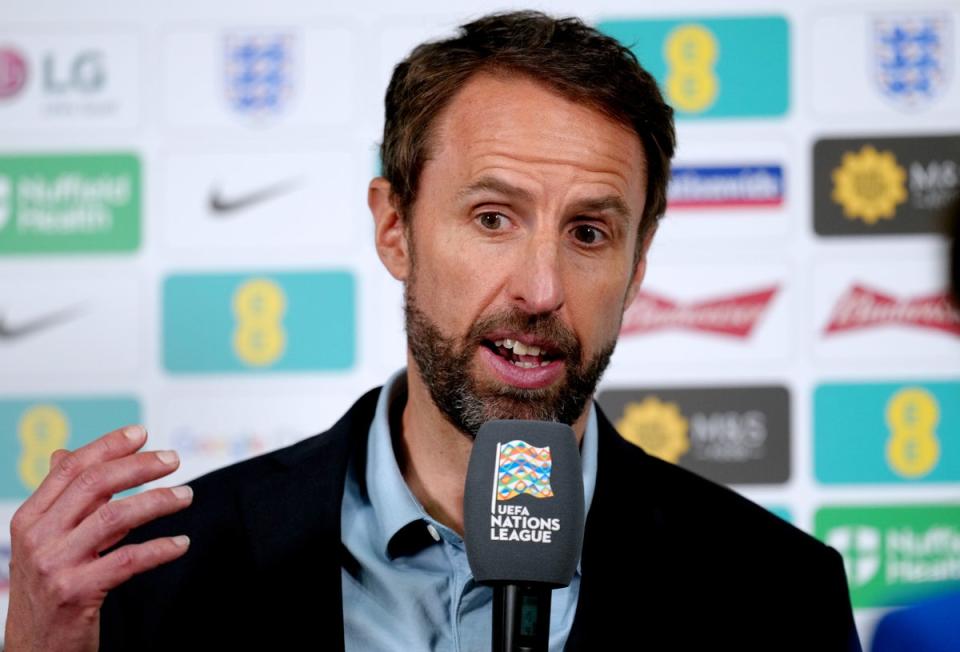
It is that this is the top level of the game, with the most exacting managers, where all the elite coaches reside.
Nothing could be further from the truth. Southgate generally isn’t facing elite managers. The vast majority of those now work in the club game, because that is where most of the money and most of the glory are.
Pep Guardiola and Jurgen Klopp are doing things at that level that are just impossible for international managers. If Southgate were to go, the potential candidates would likely be nowhere near that kind of quality.
It is why that is an issue that is often overplayed, as proven by the fact that Southgate himself came within two kicks of glory just last summer.
That points to one of two factors that could actually complicate this for England, though.
The first is that, in a break from pretty much all of the last two decades, this World Cup will feature two coaches who really are around the elite level.
Both Spain’s Luis Enrique and Germany’s Hansi Flick have recently won the Champions League. To get an idea of how striking that is, the last time that a World Cup manager had won the club game’s top prize even within a decade before the tournament was Vicente Del Bosque in 2010. He’d lifted the Champions League eight years before. Most of the other European Cup-winning managers have worked at a World Cup long after their best.
But there is now the unsettling question of whether Southgate’s England reign is past its best; whether we are now on the downside of a cycle.
Some around the Germany camp for the 1-1 draw in Munich did remark on how there felt some resemblances to the last four years of Jogi Loew’s time, where something that had worked was gradually going stale. Other long-term observers of England are meanwhile stating this has similar characteristics to, say, Sven-Goran Eriksson’s 4-1 defeat to Denmark in 2005; that point where it just drops and rancour about it all rises.
It’s similarly easy to forget how popular the Swede had once been in England. That was despite never getting past a quarter-finals.
Southgate has surpassed that in both of his tournaments.
Relatively relaxed after the Hungary game given the circumstances, the England manager was equally quick to point out that all the “pressure” he has faced has come from Nations League campaigns, that have had a host of complications. It was like that from the late-2020 games in the build-up to the European Championships, and is similar now.
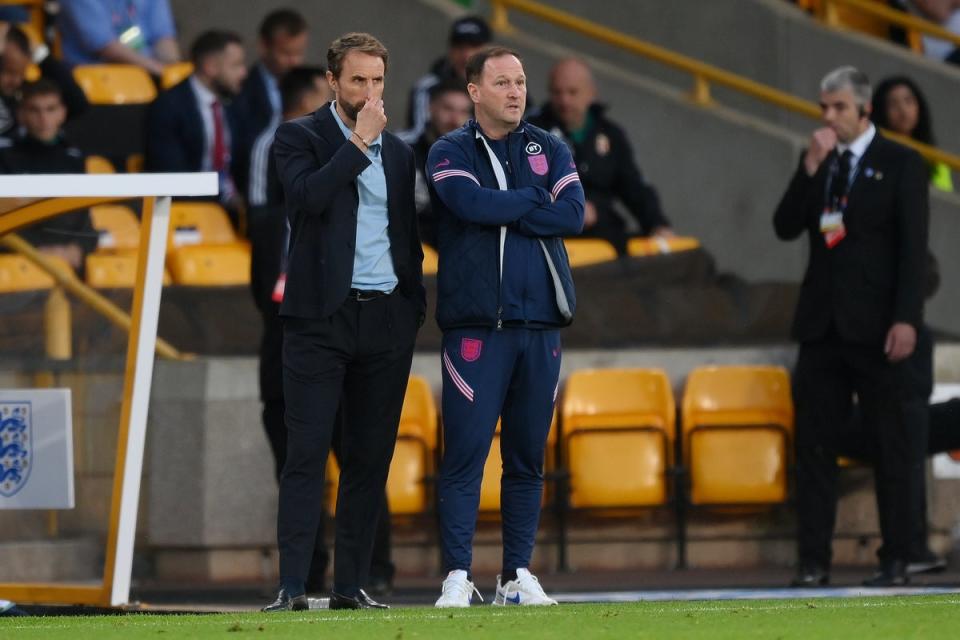
“The irony is they are in the Nations League games. In other games, we’ve had the best performances in 50 years.”
This is of course why any talk of replacing him before the World Cup should be dismissed out of hand.
There are too many caveats. There is too good a record in tournaments. England are generally too good a team.
Rossi repeated that they are among the favourites for the World Cup, and that it was “a miracle” his Hungary team had beaten them.
The chance for glory is as good as ever, even allowing for this defeat.
That is the pressure that is really on Southgate, though. The FA have long had the 2022 World Cup, more than anything else, as a distinctive target for glory. There has long been a belief that this is when many elements, not least the development of a gifted generation of talent, can come together at the right time.
It is why, whatever about anything else, this result has come at just the wrong time. Everyone involved wanted this international break to be over as soon as it started.
They’re now left to dwell on it all summer, no chance to rectify it any time soon. That will be the case for Southgate more than anyone else.

